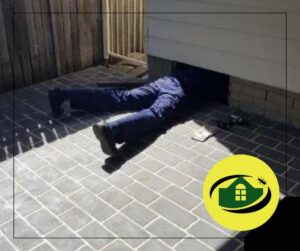Termites can pose a significant threat to homeowners by causing extensive damage to their properties. Termites are small, wood-eating insects that feed on cellulose, which is found in wood and other plant materials. They live in large colonies and work together to consume wood, potentially leading to severe structural damage if left unchecked. Here’s how termites can be destructive for homeowners:
Structural Damage
Termites primarily feed on the wooden components of a home, including beams, walls, flooring, and furniture. Over time, their constant feeding weakens the wood, compromising the structural integrity of the building. This damage can be significant and expensive to repair.
Hidden Infestations
Termites are known for their ability to remain hidden and work silently. They often build their nests inside walls, attics, crawl spaces, or underground, making it difficult to detect their presence until the damage becomes severe. By the time homeowners notice signs of an infestation, such as sagging floors, hollow-sounding wood, or discarded wings, the termites may have already caused extensive harm.
Financial Loss
The cost of termite damage can be substantial. Homeowners may need to invest in repairs, replacements, and structural reinforcements to restore the integrity of their homes. Additionally, if termite damage is discovered during a property inspection, it can significantly decrease the value of the house, making it harder to sell in the future.
Pest Control Expenses
Treating a termite infestation requires professional intervention, which can be quite costly. Homeowners may need to hire exterminators to eradicate the termites and implement preventative measures to prevent future infestations. This can involve chemical treatments, bait systems, or localized spot treatments, all of which come with associated expenses.
Health Concerns
While termites do not directly pose health risks to humans, the presence of termites can contribute to indoor air quality issues. Termite infestations often lead to moisture buildup, which can result in mold growth. Mold can trigger respiratory problems and allergies, especially in individuals with pre-existing conditions.
To mitigate the risk of termite damage, homeowners should take preventive measures, such as regular inspections, addressing moisture problems, sealing cracks and crevices, and maintaining a termite-resistant barrier around the property. Early detection and swift action are crucial in minimizing the potential damage caused by these destructive pests.
Contact Senior Pest Management today to help prevent significant damage to your home.






